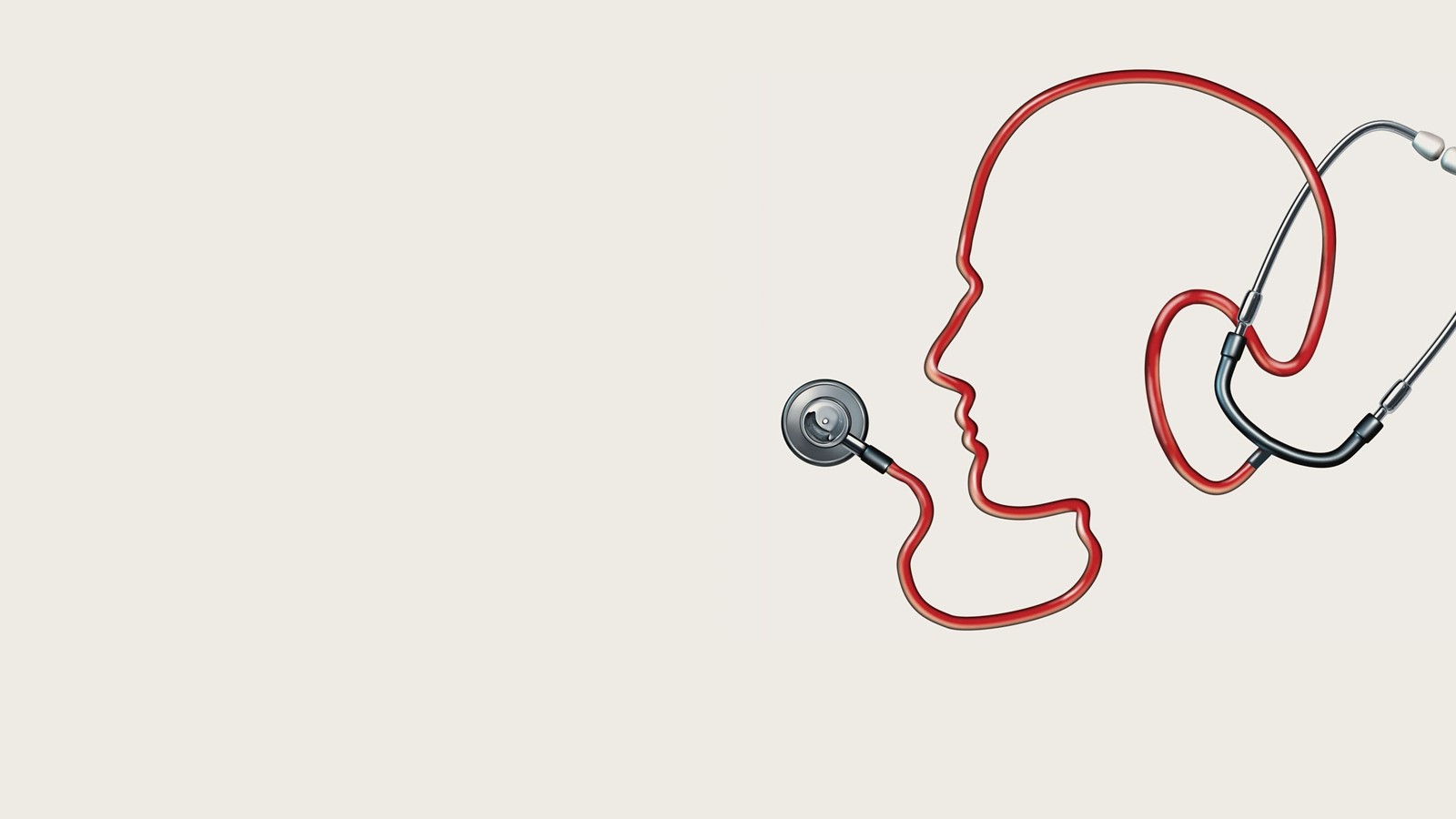The rationale for coaching in medicine
There are concerns about practice in up to five per cent of doctors, who require support to get back on track and further develop their skills to improve patient care1. The appraisal process allows the identification of interventions to support doctors in delivering healthcare. Wirral University Teaching Hospital (WUTH) has a radically successful senior medical staff appraisal system to support doctors through the revalidation process, utilising a range of interventions.
The key features of an internal coaching strategy are: 3
- That it is a learning and development activity delivered by one employee of an organisation to another (working in different chains of command)
- That it aims to deliver professional growth to the employee and improve their effectiveness
- That it is analogous to external coaching (with all that implies in terms of training, ethical behaviour and professionalism).
WUTH considered coaching to be a powerful and enabling performance tool, and identified the need to develop an internal coaching culture by training consultants in coaching skills. Nine consultants were trained in coaching skills to enable them to work as internal coaches, to support other doctors in achieving the outcomes of their appraisal. The coaching strategy has recently been independently evaluated, and we describe our experience and early results.
Training programme
I was one of nine consultants who were selected to undergo bespoke training to become coaches. Selection was based upon a person specification to ensure that prospective coaches had the necessary generic skills and attitudes, alongside a commitment to undertake the initial training and ongoing coaching requirements.
Nicola Forshaw was commissioned by WUTH to develop a bespoke training programme to equip us with the necessary coaching skills and theory to competently deliver coaching sessions within WUTH. Nicola developed a three-day advanced coaching skills course, which was later approved by the Institute of Leadership & Management (ILM).
The programme consisted of direct teaching, experiential personal development exercises, and coaching skills practice. We undertook an external assessment, in the form of a written self-reflective critique of coaching practice, coupled with an audio recording of a coaching session, both of which were measured against assessment outcome criteria. All assessment materials were validated by ILM.
We were provided with a comprehensive training and resources manual, to help maintain good standards of coaching upon completion of the core training. Additionally, a training DVD was produced to demonstrate good quality versus poor quality coaching interventions.
Nicola used a didactic presenting style to demonstrate skills and theory, and the DVD was utilised as a tool to consolidate learning towards the end of the three-day programme.
Upon completion of the initial training, we have access to a comprehensive package of external 1:1 and group supervision with Nicola, coupled with continuous professional development sessions. Regular internal peer group supervision sessions are also undertaken every two months.
Working as a coach was a challenge to start with, as I was so new to it. My coachee was also sceptical about coaching. I used my 1:1 meetings with Nicola to reflect upon my coaching sessions and to assure myself I was practising competently as a coach. My coachee allowed me to audio record a session so that Nicola could give me feedback, and provided one of the most valuable experiences I had. Nicola was able to give me constructive feedback, which allowed me to adapt my practice for future coachees. This was around role blurring and confusion, a common difficulty with internal coaching strategies. I have learned to explicitly contract that my roles as a coach and appraisal lead for WUTH are completely separate. I had assumed that coachees would know this, but Nicola’s observation of our session made me aware that my coachee was probably impacted by my other role.
Implementation process of the coaching strategy
As the lead for WUTH, I facilitated the development of a standard operating procedure (SOP) in conjunction with the consultant coaches upon completion of our training. The doctor who is referred for coaching (the ‘coachee’) agrees to the process, and their line manager, the Clinical Service Lead (CSL), also a consultant, will complete a request for coaching form, with the agreement of the coachee. The need for coaching can also be raised by the CSL, the coachee (self referral) or the appraiser. The coaching request describes the desired outcomes of coaching. This form is sent to me, and I meet with the coachee to discuss the process and offer a coach. This is a lengthy process, as I take into account any possible conflicts, as coach and coachee are matched outside of their speciality to retain objectivity. For example, this means that a physician will be offered a coach who is a surgeon. The first meeting with me is to ensure that the coachee agrees to the proposed coach.
Once the coachee has agreed, I discuss the referral with the proposed coach. When both coachee and coach agree that on paper they are well matched, I introduce them, and the request-for-coaching form is sent to the coach. The coachee and coach arrange their first meeting, the ‘contracting’ session, at which the coach outlines the boundaries of coaching to the coachee, and an agreement is signed, which explains the coaching process, and includes the limits to confidentiality.
Although this matching process is time consuming, from my point of view it is essential to get an effective match and to ensure coaching is the correct intervention. I am also able to explain to the doctor what coaching is and isn’t, so they are clear on the process. I have received inappropriate referrals, which have become clearer after speaking to the doctor; for example, in one case, counselling was required, and in another, careers advice was a better option. Also, although I offer coachees a coach who I think is ‘distant’ in work and has no conflicts, the coachee can still tell me why the match is not appropriate and ask for alternatives. This has meant that no coaching relationship has ‘broken down’ since we began the service.
Up to 10 sessions of one hour (maximum) of coaching are offered. At the conclusion of the process, coach and coachee collaboratively complete an outcome summary, outlining the progress achieved towards the agreed goals, and this is also sent to the coachee's line manager (CSL).
At the end of the process, questionnaires are sent to the coachee and the CSL, asking for feedback, to identify any behavioural change and enquire if the coaching has achieved the defined objectives. Another form is completed six months after the end of the process by the CSL to determine if coaching has had a longer-term impact.
Perceptions, awareness raising and promotion of coaching
The initial perception about coaching in the hospital was that it was ‘punitive’ and part of remediation. Remediation implies that there is something ‘wrong’ with a doctor that has to be ‘put right’ and therefore, initially, coaching raised negative perceptions among doctors. The marketing and promotion of the coaching service was therefore not easy, and it took me some time to persuade doctors of the benefits.
I discussed the coaching process at the medical board meeting, which is open to all doctors at WUTH. Leaflets about coaching and how to access the service were sent to all doctors. All trained coaches attended departmental meetings with doctors to promote the benefits of coaching as a developmental intervention.
Evaluation
Within the first six months of implementation, an independent evaluation of the coaching strategy was commissioned by WUTH. The evaluation used Kirkpatrick's Four-Level Training Evaluation Model4 as the structure to test the outcomes of the programme for the coaches, coachees, and CSLs.
Quality of training
The overall standard of the delivery of the training programme was rated as ‘excellent’ by 100 per cent of the participants with an additional range noted as ‘professional’ and ‘competent’ for all three days of the programme.
The most useful elements of the workshop were the sessions about:
- Empathy
- Barriers and coaching
- Role play/practising techniques
- Reframing/options extraction from coachees
- Practising and observing.
The programme used a pre- and postprogramme self-assessment questionnaire that tested the participants’ understanding of coaching techniques (such as the GROW model). As a result of completing the programme, all participants’ knowledge and understanding had increased from between 45 per cent to 70 per cent pre programme to 90 per cent to 100 per cent post programme.
Impact upon coaches
Coaches were asked about the most challenging aspects of becoming an internal coach. The responses were far reaching and included:
- The coachee’s perception of the process
- The perception that coaching is punitive
- The perception that coaching is hierarchical
- Not being a mentor
- Balancing the coachee’s needs with the demands of the organisation
- Ensuring you leave your own issues and frustrations at the door
- Time management
- Ensuring colleagues of confidentiality.
Coaches were also asked at a more personal level if undertaking this coaching process had changed them and, if so, in what ways. The responses included:
- Learnt more about myself
- Developed coaching skills and practice
- Discovered I thought I listened, but not enough
- Mindful of the hierarchy as an issue, as this can influence others
- Reinforced my belief in the importance of the process, quality assurance and governance issues when introducing a new service
- Helped me to reflect more
- Hope it has helped strengthen my current role through the use of techniques
- Strengthened my ability to help people
- More aware of personal thoughts/interaction with others
- Understanding of the difficulties doctors may have but find it difficult to express.
Overall, the coaches' comments were positive, with the recognition that coaching has a lot to offer to a wider staff group than doctors, andc an benefit WUTH in the delivery of healthcare.
I can identify with my fellow coaches' personal reflections above. Coaching has confirmed to me that doctors carry personal problems that can affect their work and that supporting them can help them to work more effectively. This ultimately keeps them working and helps them develop their career and also
services for patients.
My own professional experience has provided some vicarious learning in the form of better time management and improved listening skills. I have learned from coachees, who have developed great strategies to solve their problems, some of which I have also implemented. It has been a real privilege for me to coach doctors; I observed a doctor change from being worried and sceptical that they could change their behaviour, to them becoming increasingly confident, and enabling them to develop new services for patients.
Impact upon coachees
Coachees were asked about the experience of being coached and the benefits to them. All coachees thought the process was helpful and supportive. Coaching had given the coachees:
- An understanding of what is important when communicating
- An understanding of the importance of working in teams with other healthcare professionals
- The skills to deal with stressful situations and to feel less pressured
- The ability to feel happier to deal with conflict in a more positive manner
- Improved communication during times of stress
- The ability to deal with conflict in a calmer way
- The ability to recognise other people’s contribution and negotiate better when conflicting interests arise.
Coachees were asked about the style of the coaches. They felt that the coaches were understanding and supportive. They listened attentively and took a real interest in helping them. The coaches were calm and challenging in a positive way that supported the coachee to challenge themselves. The whole process was honest and credible, and it was easy to establish a trustworthy relationship with the coach. The meetings were well prepared, and structured plans were made for the next steps along the process. One coachee felt that even though the sessions were complete, they could still approach the coach if needed.
CSL feedback
CSLs held varying views when asked for feedback immediately after the coaching process. However, when surveyed six months later, the emerging theme was that coaching had had a positive and sustained effect on the behaviours of the doctors.
In the last year, 14 doctors have had internal coaching. The feedback continues to be positive from all participants and, as a consequence, there is now an increasing demand for coaching n WUTH.
Although coaching is well established in other sectors, it has only recently been introduced to doctors. There is evidence in industry of the effectiveness of coaching but less so in the healthcare sector. The introduction of internal coaching by doctors for doctors was therefore a difficult process, which took three years to implement. Following 12 months of active coaching, scepticism has reduced as positive messages regarding the benefits of coaching are being observed by doctors. Indeed, interest in coaching among non-medical staff has increased as a result of seeing the benefits within the medical staff. This has resulted in the need to increase the number of coaches by expanding the service to all staff who request coaching. I feel that becoming a coach in a hospital and implementing the process of doctors coaching doctors has been a long and challenging one, but has been one of the most valuable and rewarding experiences of my career. In time, the organisation will embed coaching as part of its wider culture, and this can only help healthcare staff improve the service they give to patients
Acknowledgements
We would like to thank the coaches and coachees for allowing us to use their feedback and their commitment to the project, without which this article would not have been possible.
Debra King, FRCP is a consultant physician and Associate Medical Director for Appraisal and Revalidation at Wirral University Teaching Hospital. She is also Visiting Professor at the Institute of Medicine, University of Chester.
Nicola Forshaw, MA, MBacp (Accred) is a coach, coaching supervisor and director of NJ Coaching.
More from Coaching Today

The stories we tell: a narrative approach to coaching
Open article: What role do myth, fable and story have in constructing our identity? Narrative coach Sue MacMillan demonstrates how we can use stories to help clients gain new insight and understanding and swap unhelpful or harmful scripts for those that offer hope, healing and possibility. Coaching Today, July 2015

Brief coaching with children and young people: a solution-focused approach
Open article: Denise Yusuf describes the brief solution-focused method of coaching and explains why it is so effective when applied to work with children and young people. Coaching Today, April 2015

A place of safety: getting the most out of supervision
Open article: In the second article of our three-part series exploring the role and purpose of supervision for coach-therapists, Jo Birch and Sarah Corrie offer guidance on how to get the most from this unique and complex relationship. Coaching Today, January 2015
References
1 NHS Revalidation Support Team. Supporting doctors to provide safer healthcare: responding to concerns about a doctor’s practice. V1; March 2012. www.revalidationsupport.nhs.uk
2 Hawkins P. Creating a coaching culture. Maidenhead: Open University Press; 2012.
3 St John-Brooks K. Internal coaching: the inside story. London: Karnac; 2014.
4 Kirkpatrick DL. Kirkpatrick JD. Evaluating training programs: the four levels. New York: Berrett-Koehler; 2006.
